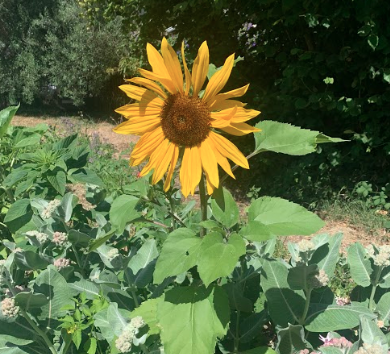
Flow of Energy in an Ecosystem
Summary:
In this lesson, students take a deep dive into exploring how energy moves through a garden ecosystem. First, students define and observe examples of energy in the garden ecosystem. Then they examine where the energy in a garden ecosystem comes from, and whether it could ever run out. In the next lesson, students will explore how matter moves through an ecosystem. Students will use what they learn in both lessons in order to form the foundation for the following lesson, Compost, in which students will explore the role of compost and decomposition in a garden ecosystem.
Download Lesson Plan
Teaching Notes:
- For sections that instruct students to READ, you can record yourself reading aloud and send it to students. Invite them to read along with the recording. This is a helpful strategy for differentiating learning that supports all students, especially English Language Learners.
- If you are teaching this lesson in the garden, we suggest completing the sections as a whole glass or in small groups. The garden is a great place for discussion-based lessons.
- lesson is designed both to help students start to wrap their heads around this project in a more structured way, but also to prompt excitement and enthusiasm about the driving question. Encourage students to really get all their thinking on the table here, especially during the brainstorm section. At this stage in the process, the more possibilities the better! You never know what kind of creative solutions or ideas may arise from something that at first seems completely unrealistic or “out there”.
- The first PAIR SHARE in this lesson asks students to track the sources of energy in their own bodies, and in crops. Students should have a basic idea about how to answer these questions based on things they learned in elementary school science classes. However, we recommend you use this pair-share as a way to gauge your students’ level of prior knowledge and identify any significant misconceptions. Science instruction in elementary school tends to be inconsistent, and so there may be less background knowledge for some students than others.




